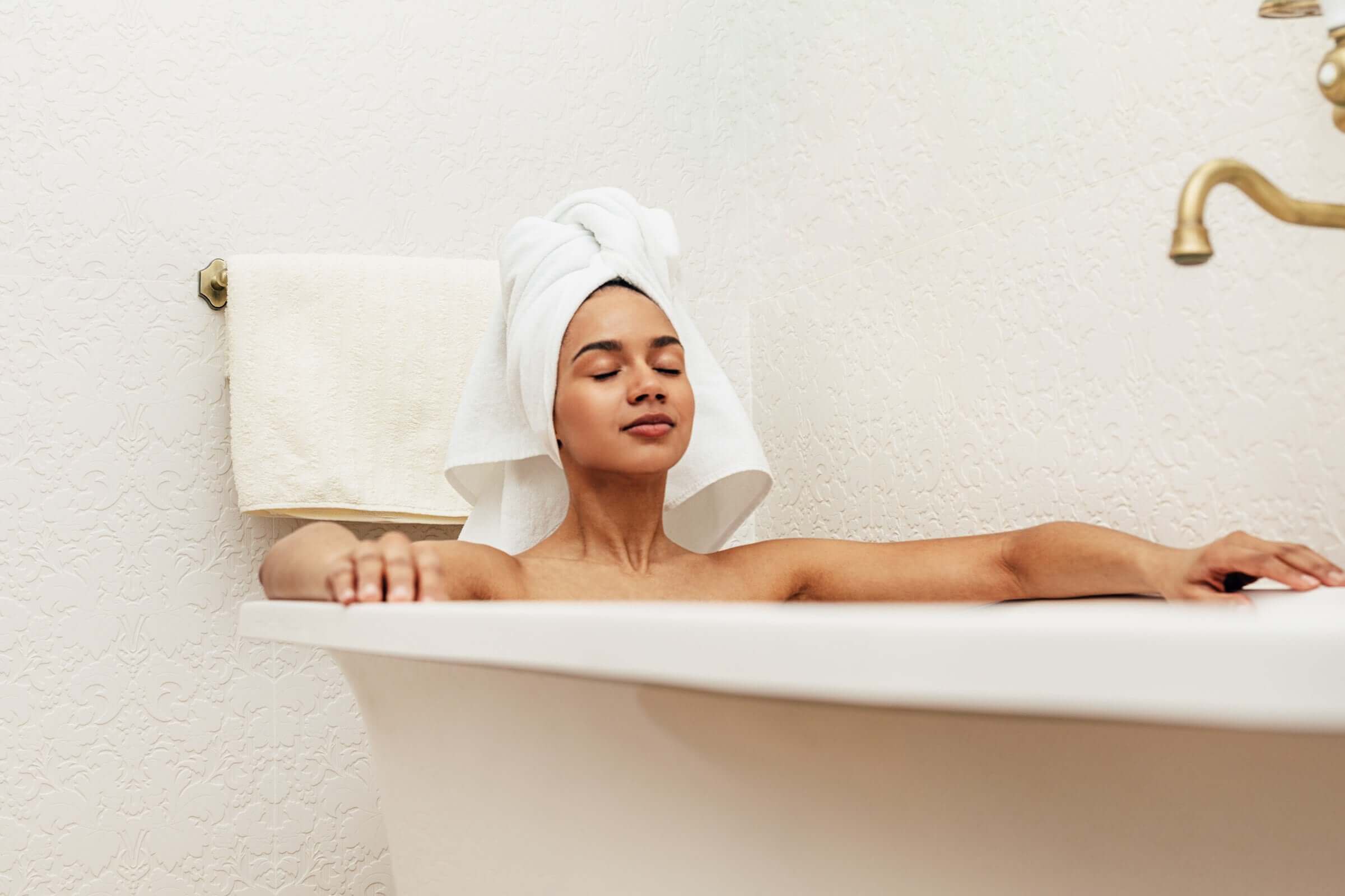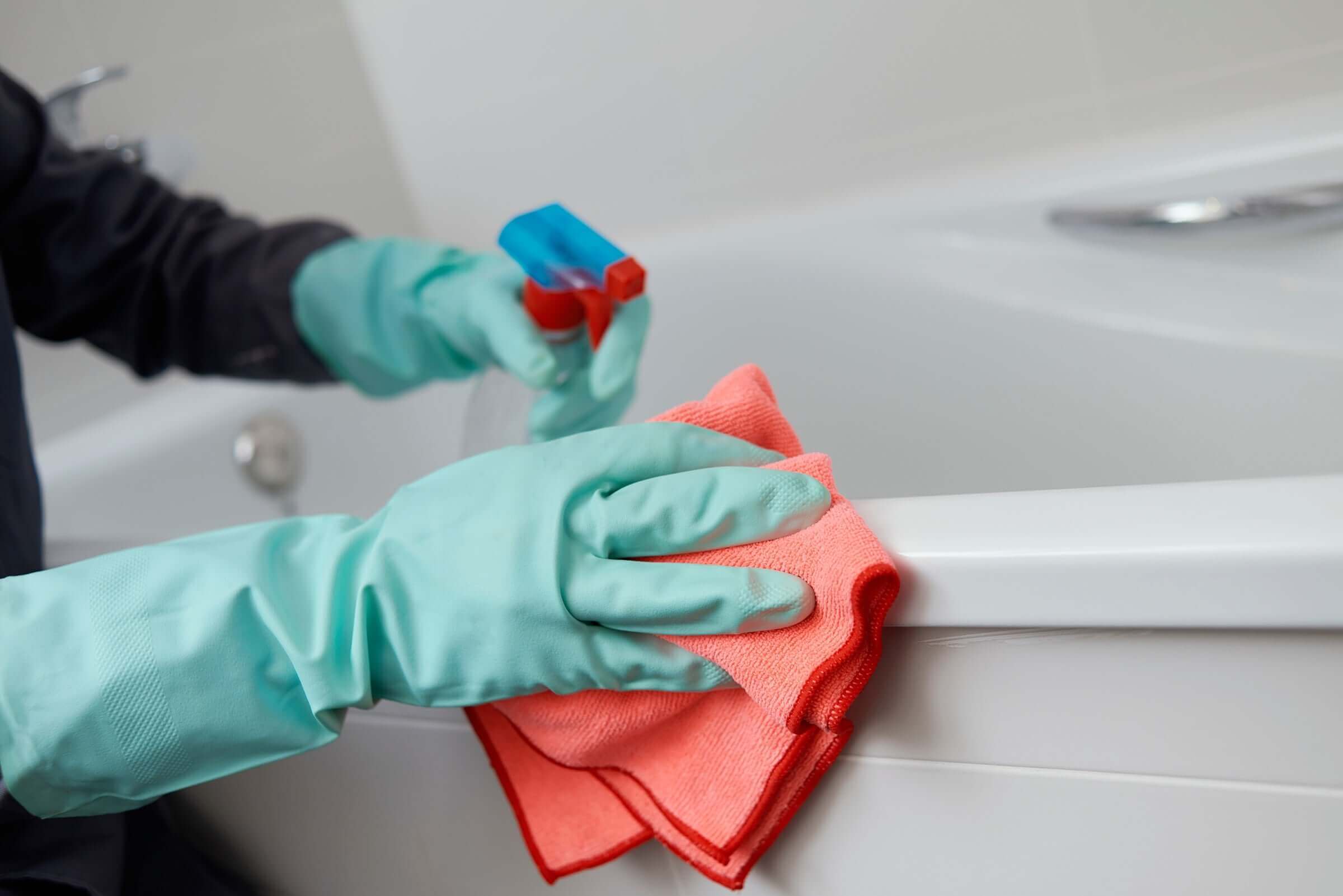Do Baths Help You Sleep Faster? Here's What to Know

If counting sheep has become an exhausting nightly ritual, you’re definitely not alone. Between stress, screens, and the chaos of daily life, our circadian rhythms are often out of whack, making natural sleep feel as elusive as Wi-Fi in the wilderness - difficult, but not impossible to find.
If you’re tossing and turning at night, tired of relying on those not-so-great pills, and looking for a natural way to catch some Z’s without melatonin, you’ve probably heard that bath time can help. Well, buckle up because we’re about to spill the tea on how a simple soak could be your secret weapon for falling asleep fast.
Why Do Some People Struggle to Sleep at Night?
There are countless reasons why sleep can be elusive. Stress and anxiety are major culprits, as racing thoughts make it difficult for the mind to shut down. Lifestyle factors, like irregular sleep schedules, excessive screen time, or consuming caffeine late in the day, can also throw off your body’s natural sleep-wake cycle.
Additionally, environmental factors like too much light, noise, or an uncomfortable mattress can disrupt rest. Underlying health conditions, such as insomnia, sleep apnea, or restless leg syndrome, may also play a role.
Do Warm Baths Really Help You Fall Asleep Faster and Better?
Yes, warm baths can indeed help you fall asleep faster and improve your overall sleep quality. Research supports this claim, with a notable study led by Shahab Haghayegh, a PhD candidate at The University of Texas, providing compelling evidence. His team reviewed over 5,000 studies to analyze the effects of bathing on sleep. The findings revealed that soaking in warm water at a temperature between 104°F and 109°F (40°C to 43°C) approximately 1 to 2 hours before bedtime—ideally 90 minutes—can have a significant impact.
Not only does this practice help you relax, but it can also reduce the time it takes to fall asleep by about 10 minutes. The process works by promoting thermoregulation: the warm water raises your body temperature, and the subsequent cooling down after the bath signals your body to prepare for sleep. This drop in core body temperature aligns with your natural circadian rhythms, enhancing the release of melatonin, the sleep hormone. As a result, you’re more likely to enjoy deeper, more restorative sleep. If you’re aiming to fall asleep faster and level up your sleep quality, a warm bath could be the secret ingredient your nighttime routine’s been missing.
How a Warm Bath Can Help You Sleep Faster:
1. Cool Down to Drift Off
When you soak in warm water, your body’s core temperature rises. Once you step out, your body cools down quickly, signaling to your brain that it’s time to wind down. This cooling process mimics the body’s natural sleep cycle and helps trigger the production of melatonin, the hormone that regulates sleep.
2. Melatonin Boost
The cooling effect your body experiences after a bath stimulates the production of melatonin, the hormone that regulates your sleep-wake cycle. Essentially, your body gets the signal that it’s time to wind down and prepare for sleep. By speeding up this natural cooling process, a bath helps kickstart melatonin production, making it easier for you to relax and drift off more quickly.
3. Circadian Rhythm, Meet Bathtime
Your circadian rhythm is essentially your body's internal clock, helping regulate when you feel awake and when it's time to sleep. It works by responding to environmental cues, like light and temperature. Soaking in a warm bath 1-2 hours before bed helps support this natural rhythm by lowering your body temperature once you step out. This cooling process signals to your body that it’s time to wind down, making it easier for your circadian rhythm to sync with the idea of sleep. As a result, your body is primed to relax and get ready for a restful night.
4. Relaxed and Ready for Sleep
A 10-15 minute warm bath can do more than just relax your muscles—it can actually lower your blood pressure, helping to create the ideal environment for sleep. The warmth of the water encourages blood vessels to dilate, which improves circulation and promotes a sense of calm. As your blood pressure drops, your body enters a more restful state, reducing stress and anxiety. This helps signal to your brain that it’s time to wind down, making it easier to drift off into a deeper, more restorative sleep.
Step-by-Step Guide to Your Sleep-Inducing Bath
1. Timing is Everything
Start your bath 1–2 hours before you plan to hit the pillow. This gives your body enough time to cool down post-soak.
2. Set the Scene
Turn your bathroom into a serene spa. Dim the lights or light some candles, and play calming music (think rain sounds or soft piano).
3. Perfect the Temperature
Aim for a water temperature of 98°F–104°F. It should feel warm but not scalding. If you start sweating, it’s too hot.
4. Add Sleep-Boosting Scents
Drop in a lavender-scented bath bomb for that dreamy fragrance. The soothing scent of lavender isn’t just a treat for your senses—it’s backed by science for its stress-busting and sleep-enhancing benefits. Known to reduce anxiety, ease tension, and promote relaxation, lavender can help calm your mind and prepare your body for a peaceful night’s rest.

Lavender dreams incoming—soak your way to snooze town: Tub Therapy Soakshow CBD Bath Bomb in Sweet Lavender, $15 each with free shipping
5. Limit Your Time
Keep your soak to 15–20 minutes. Overbathing can leave you feeling dehydrated or too hot.
6. Lotion Up
Applying lotion after a bath is essential because warm water, while relaxing, can strip your skin of natural oils, leaving it feeling dry and tight. A good lotion, like Tub Therapy’s After Tub Rub CBD and Organic Shea Butter Handmade Body Lotion in Lavender, helps restore and lock in moisture after bathing, keeping your skin soft, smooth, and healthy. The lavender scent works to calm your senses, creating the perfect pre-bedtime ritual. Slip into cozy, breathable pajamas, and let the lotion lock in moisture as you keep the cool-down momentum going.
7. Turn Down the Lights
Transition from the bathroom to a dimly lit bedroom. Blue light from screens is a no-no; try a book or some light stretching instead.
Did You Know? Warm Baths Offer More Than Better Sleep
Warm baths aren’t just great for helping you fall asleep faster – they also come with a range of other benefits you might not know about.
Other Benefits of a Warm Bath:
-
Relieves Muscle Tension: Soothes sore shoulders, stiff necks, and achy joints.
-
Improves Circulation: Enhances blood flow, promoting healing and reducing discomfort.
-
Reduces Stress and Anxiety: Calms the nervous system and boosts feel-good endorphins.
-
Supports Skincare: Steam opens pores, allowing for deeper cleansing and hydration.
-
Eases Chronic Pain: Can provide temporary relief for conditions like arthritis.
-
Promotes Relaxation: Helps you unwind mentally and physically after a long day.
Our verdict?
Taking a warm bath isn’t just about falling asleep faster—it’s about creating the perfect setup for a night of deep, quality sleep. Drop in a lavender bath bomb, and you'll be floating off to dreamland in no time. No need for counting sheep—just you, your bath, and the promise of sweet, uninterrupted shut-eye.



